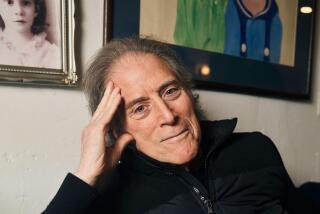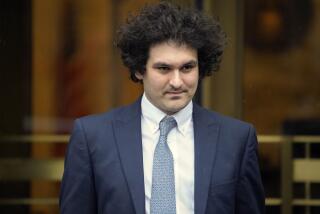Crashing Through the Glass Ceiling : Black entrepreneur Reginald F. Lewis leaves an inspiring legacy of achievement
- Share via
Reginald F. Lewis, the Wall Street attorney turned deal maker who amassed a fortune estimated at $400 million before his death last week from brain cancer, lived the American dream. In a span of two decades, he rose from middle class to mega-millionaire.
Such a record of achievement, though spectacular, was not considered unthinkable for this stubborn Harvard-trained lawyer, who had sizable ambition and the skills to match.
Lewis, who did his undergraduate work at historically black Virginia State University, considered his race incidental; in that attitude he was like many other members of the new generation of high-powered black entrepreneurs.
He excelled in a nation where race still imposes barriers (a white high school graduate typically earns more than a black college graduate). “I’m often disturbed by the notion of the so-called glass ceiling. Glass can be broken,” he told the magazine Black Enterprise in a 1988 interview. “ . . . You’ve got to take the necessary steps to make it happen.”
Lewis, 50, made it happen despite the snubs, slights and other obstacles. He rode the wave of junk bonds that fueled the leveraged buyouts that were a staple of the expansive ‘80s. His take-no-prisoners style of financial maneuvering always left him a big winner. He scored a huge return on the sale of his McCall Pattern Co., a giant in the home-sewing industry. On that deal alone, he racked up more than $50 million in profits.
One financial coup led to another. With the help of Drexel Burnham, Lewis fashioned an even bigger deal. He made his name, and his reputation, with the $985-million acquisition of Beatrice International Foods, a multinational food processing and distribution company that had operations in 31 countries in Europe, Latin America and Asia.
TLC (The Lewis Co.) Beatrice, the largest black-owned company in the nation, did a brisk $1.5 billion in sales last year and earned a more than respectable $51 million in profits. Demanding of his employees and himself, Lewis profited handsomely.
One of the 400 richest Americans, Reginald Lewis made it big in a nation where one out of three African-Americans lives below the poverty line. However, he wanted to be judged not on the basis of his race--as a financial Jackie Robinson--but on the basis of his big-league achievements and acquisitions. By widening the margins of success for black entrepreneurs, he left an inspirational legacy of huge possibility.
More to Read
Inside the business of entertainment
The Wide Shot brings you news, analysis and insights on everything from streaming wars to production — and what it all means for the future.
You may occasionally receive promotional content from the Los Angeles Times.










